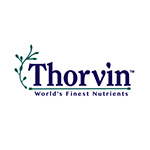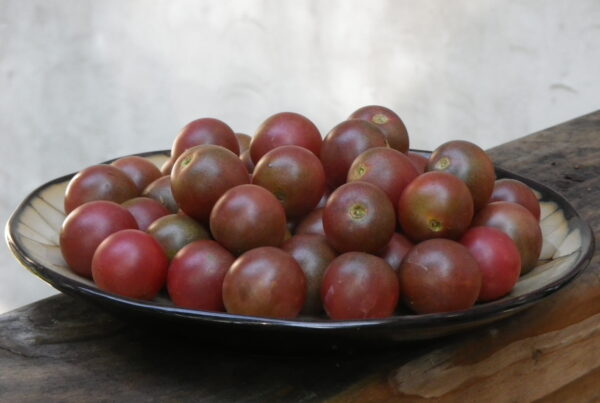Agriculture and Climate Change: Policy Imperatives and Opportunities to Help Producers Meet the Challenge
National Sustainable Agriculture Coalition (NSAC), 2019
Available at https://sustainableagriculture.net/publications/.
On November 13, NSAC released its Policy Position Paper on farming, climate, and agricultural policy. While the unfolding climate crisis continues to threaten agricultural production and rural communities, and (at last) gain air time in political debates, research shows that much can be done to build the resilience of our farms and communities to climate change, and zero-out the “greenhouse gas footprint” of our farms, ranches, and food system. This can happen through:
- Integrated organic and agroecological systems that emphasize soil health.
- Management-intensive rotational grazing.
- Phasing-out confined-animal feeding operations (CAFOs).
- Perennial based production systems – agroforestry, silvopasture, permaculture.
Based on a review of research findings and farmer experience during the decade since a 2009 NSAC report on climate and agriculture, this Policy Positon Paper (78 pp) provides scientific rationale for the most effective policy and programmatic measures to help producers “weather the storm” and contribute to slowing climate change itself. NSAC will use this report to inform key Members of Congress, political candidates, and sustainable farming advocates on the latest science and its implications for decision makers at all levels. In addition, NSAC has developed a two-page synopsis of our findings and recommendations, available at: https://sustainableagriculture.net/wp-content/uploads/2019/11/NSAC-Climate-Change-Principles.pdf. To read NSAC’s November 13 Press Release on the new report, visit https://sustainableagriculture.net/blog/release-moving-net-zero-climate-release/.
Farmer Letter on Climate Change Solutions in Agriculture
Thank you to the 19 farmers who have already signed this letter. Our goal is to reach 5,000 farmer signatures nationwide, with at least 100 from VABF. This is a vital part of our campaign to develop and enact policy that will help us all meet the challenges of the climate crisis.
If you have not yet signed, and you meet the USDA definition of a farmer or rancher (making at least $1,000 a year through agricultural enterprises), check out the statement text and (if you find yourself in alignment with the statement) sign on at following links:
For more info on this campaign, check out this FAQ developed by NSAC.
Food-Insecure Americans at Increased Risk
The Food Research and Action Center has issued a call to action: comments in opposition to a proposed new regulation that could restrict or suspend access to Supplemental Nutrition Assistance Program (SNAP) benefits for at least a million food-insecure households. USDA’s proposed rule on SNAP Standardization of State Heating and Cooling Standard Utility Allowances would cut program benefits by a total of $4.5 billion over five years. This cut would result from changes in how states take households’ utility costs into account in determining the amount of SNAP benefits for which they qualify. Join FRAC in submitting comments against the proposed rule, at the following link:
VABF Attends Virginia NRCS State Technical Committee Meeting
Conservation Stewardship Program and Soil Health Monitoring Help Farmers
On Thursday, November 14, the Virginia state office of USDA Natural Resources Conservation Service (NRCS) held a meeting of the State Technical Committee. Jill Auburn and Mark Schonbeck attended, representing VABF at this meeting.
Assistant State Conservationist Julie Hawkins summarized key conservation provisions in the 2018 Farm Bill and discussed the recently released Interim Final Rule for the 2020 signup for the Conservation Stewardship Program (CSP). New CSP offerings this year include a one-time payment for comprehensive conservation planning (addressing all resources on all land uses within the farm operation), supplemental payments for advanced grazing management systems (management intensive rotational grazing, etc), and a separate ranking and funding pool for organic and transitioning-organic operations.
NRCS agronomist Chris Lawrence gave an excellent presentation on soil health monitoring and management in agriculture. For years, he and his colleagues have sought an approach to assessing soil health and ecological function that is at once thorough, accurate, and simple and affordable enough to be practical for producers. Based on extensive review of research findings in Virginia and neighboring states, he is focusing on a measure of “potentially mineralizable nitrogen” (PMN) – essentially how much N the soil life will provide from organic matter, and thus how much less N the grower needs to apply. Outcomes include cost savings for producers and greatly reduced nutrient pollution to ground and surface water. As a bonus, practices that enhance soil PMN also tend to build organic matter, sequester carbon, and prevent erosion.
Organic Farmers Testify before House Agriculture Committee
On October 30, several leading organic farmers from around the US communicated their concerns and aspirations to the Biotechnology, Horticulture, and Research Subcommittee of the House Ag Committee. Key themes included opportunities to expand the organic sector and protect its integrity against fraudulent claims (especially in imported products), a need to expand USDA organic research, education, and beginning farmer training; and helping producers meet the challenges of climate change. For more on this hearing, see NSAC blog at https://sustainableagriculture.net/blog/house-organic-hearing-2019/.
Chesapeake Grows: a Regional Approach to New Farmer Success
Future Harvest / CASA to lead Beginning Farmer Training Project
The USDA Beginning Farmer and Rancher Development Program (BFRDP) recently announced awards for 32 projects totaling $14 million for the 2019 grant cycle. Our neighbor NGO, Future Harvest / Chesapeake Alliance for Sustainable Agriculture received almost $200,000 to pilot an innovative regional training and networking program for new farmers in collaboration with six other partner groups. Other grantees included the Organic Seed Alliance (OSA) for training beginning farmers in organic seed production, and Ohio Ecological Food and Farming Association (OEFFA) to help beginning farmers acquire land and establish viable farming businesses. For more on the BFRDP awards, see NSAC blog at https://sustainableagriculture.net/blog/usda-invests-train-next-generation-farmers/.
Current USDA and State (VA) Program Opportunities
Virginia Agricultural Best Management Practices Cost-Share Program. $73 million to help farmers implement cover crops, nutrient management, IPM, riparian buffers, fencing to keep livestock out of streams, and more. Available through June, 2020 or until funds exhausted. Details in July, 2019 e-newsletter and at https://www.dcr.virginia.gov/soil-and-water/costshar2. To apply, visit your Soil and Water Conservation District office.
Southern SARE On-Farm Research Grant Proposals are due December 6. This program funds agricultural professionals to conduct on-farm research with one or more producers. Grants up to $20K for projects up to two years are offered. https://www.southernsare.org/Regional-News/Press-Releases/Southern-SARE-On-Farm-Research-Grant-Call-for-Proposals-Released.
Farm to School Grants Request for Applications. Funding priorities emphasize Indigenous and economically distressed communities that would benefit most from the program. For more info, visit https://sustainableagriculture.net/blog/farm-to-school-grant-applications-released/.
Rural Energy for America Program (REAP) includes small grants (up to $20K) for producers to install solar, wind, or energy efficiency infrastructure. Apply by March 31, 2020. For more info, visit https://sustainableagriculture.net/blog/reap-rfp-for-rural-renewable-energy-projects/.
NRCS Regional Conservation Partnership Program (RCPP) is open for applications through December 3. RCPP supports collaborative, innovative endeavors to addres conservation issues.
More info at: https://www.grants.gov/web/grants/search-grants.html?keywords=10.932. or contact Stacey Bradshaw or Julie Hawkins at Virginia NRCS office, 804-287-1692.
Beginning Farmer and Rancher Development Program (BFRDP) RFA for 2020 open through Feb 13, 2020. http://sustainableagriculture.net/blog/14-million-available-to-help-train-the-next-generation-of-farmers/.
Agriculture and Food Research Initiative (AFRI) Foundational grants. RFA for 2020 open through March 19. http://sustainableagriculture.net/blog/afri-foundational-rfa/.
Organic Research and Extension Initiative (OREI). RFA for 2020 open through January 23. http://sustainableagriculture.net/blog/fy2010-fy2020-orei-rfa/.






